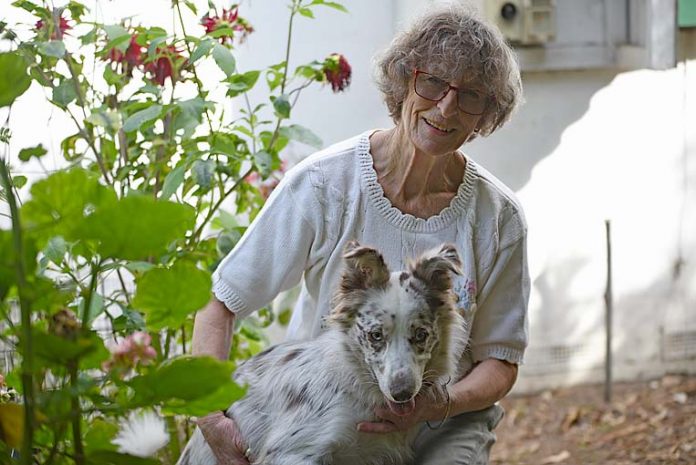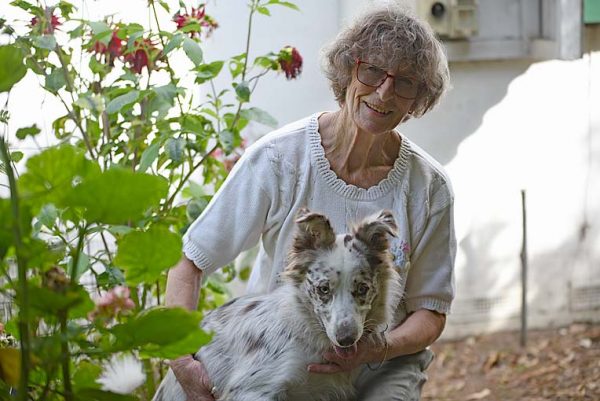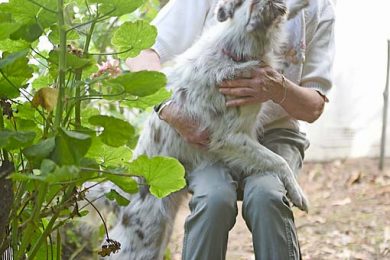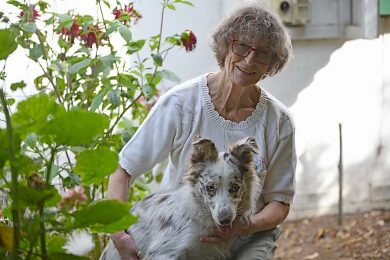

A SOUTH East resident is becoming a voice for change to fox baiting in South Australia following the traumatic death of her beloved dog last year.
Glencoe resident Sandy Johnson lost her dog Bunji in May last year, after the canine came into contact with the deadly fox bait 1080.
It had been placed on a neighbouring property just 400 metres away and Ms Johnson believed a fox had moved the bait onto her premises.
Bunji experienced symptoms, which lasted more than 45 minutes and Ms Johnson described it as the “death from hell”.
“As we drove her to the vet, I could hear her body being torn apart by the massive seizure as my husband fought to hold her,” Ms Johnson said.
“Bunji’s death was so violent her body was already in full rigor mortis.”
While devastated by the death of her beloved animal, the traumatic experience became her trigger for change as she began lobbying all relevant stakeholders to switch to a fox-bait called foxcute (PAPP).
“The PAPP bait is accurately measured to kill a fox up to 10kg and a dog up to 15kg is at risk, but can survive with an antidote, which is available at all vets,” Ms Johnson said.
“I had contact with OneFortyOne Plantations which had never heard of PAPP, however they have now changed their whole baiting program – they have been fantastic to deal with.”
Ms Johnson said a number of the residents in Glencoe were close to pine plantation, so their decision to change their baiting program was welcomed.
However, she still holds grave fears for her own dogs after discovering her neighbour was still using 1080.
Ms Johnson was not aware her neighbour was baiting with 1080 until she began investigating her dog’s death.
“They had been given permission to bait, however they had eight neighbouring properties and only some were notified,” Ms Johnson said.
The incident was reported to Biosecurity SA, which issued a formal warning, however it still granted the resident permission to use 1080 baits in the future.
“I was horrified to find they were still allowed to use 1080,” Ms Johnson said.
“They are educated people and they got it so wrong.”
Ms Johnson said the Natural Resources Management distribute the baits and offer consumers a choice of both 1080 and PAPP.
However, PAPP is about twice the price of 1080.
“But what price do you put on my dog?” Ms Johnson said.
While Ms Johnson said she understood the need for farmers to keep fox numbers down, but the lack of compromise left her feeling distressed.
“I am not asking for big farmers who have big isolated properties to neccesarily change, but I think people living with so many neighbours should use PAPP,” she said.
“These baits have marker beads, which make them easy to recognise, whereas little pieces of meat are usually soaked in 1080, making it impossible to identify as bait.
“Foxes cannot read signs, so it is naive to think they will not move the baits onto other properties.”
After achieving a positive result with the forestry industry, Ms Johnson said she would continue to lobby key stakeholders to stop 1080 being used in settled areas.
“I am not the only one who has lost a dog to this bait, I know of seven dogs in the region that have died at the hands of 1080,” she said.
“These baiters have broken every rule in the book and yet they are still allowed to use 1080.”
To register a dog which is suspected to have died from fox bait, call the NRM on 8735 1177.









